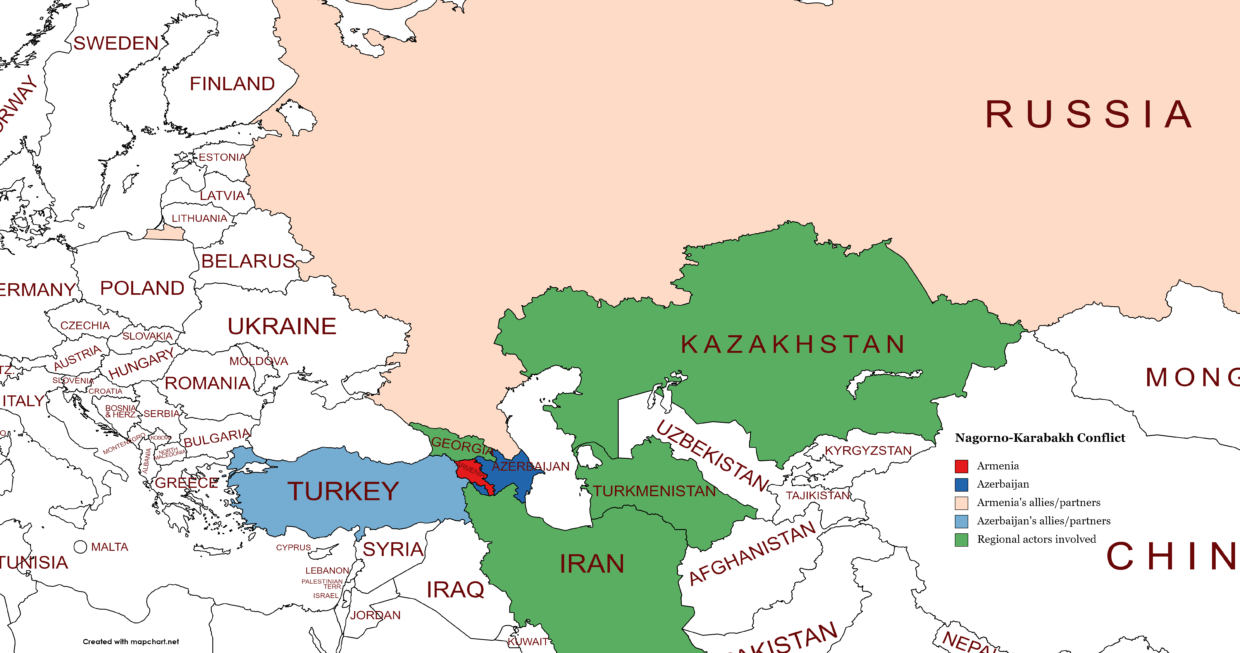Armenian parliamentary election: why matters?

Kavkaz Files ISSN 2975-0474 Volume 5 Issue 2
Author: Giuliano Bifolchi
After the 2018 Velvet Revolution and the 2020 Nagorno-Karabakh Conflict, Armenian is at the crossroad for its future existence because on June 20th, 2021, the Armenians will vote for the third time in five years for the Prime Minister and national government.
Even though there are 22 parties and four electoral blocs on the ballot, the main question is whether the former Prime Minister Nikol Pashinyan will retain the majority in the parliament or lose its leadership in favour of his longtime opponent Robert Kocharyan.
The reason for the early elections to the Armenian parliament was the result of the 2020 Nagorno-Karabakh War. The trilateral statement on the cessation of hostilities that Pashinyan signed with the presidents of Azerbaijan and Russia was perceived by a significant part of the Armenian society as capitulation. Mass protests followed in the country, and the Armenian leader Nikol Pashinyan was forced to announce early elections.
On the one hand, the opposition parties have accused Pashinyan of losing the war against Azerbaijan. On the other hand, Pashinyan’s supporters believe that corruption and mismanagement of the previous Armenian governments and leadership are the main reason for the Armenian failure in the 2020 Nagorno-Karabakh Conflict and its incapacity to improve its economic development and face the pandemic.
Although it is difficult to predict who will win this parliamentary election, it should be noted that the Armenians will face a difficult choice between Pashinyan, who ‘surrendered’ the Nagorno-Karabakh and was unable to defend the country’s borders, and Kocharyan, whose past government was associated with corruption and harsh reprisals against political opponents.
Why does this parliamentary election matter?
Because the 2021 Armenian parliamentary election will mark the future of the country and Yerevan’s domestic and foreign policy. Russia is the leading partner of Armenia even though during Pashinyan’s leadership Moscow-Yerevan relations cooled down because the Kremlin has never seen with favour the 2018 Velvet Revolution and has interpreted with distrust Pashinyan’s domestic and foreign policy.
After the 2020 Nagorno-Karabakh Conflict is clear that Russia still plays a vital role in Armenia’s existence, this means that the future Prime Minister will deal with Russia in any case whether the Armenians will vote for Pashinyan or Kocharyan, although the last one has often declared its friendship with Putin and ‘devotion’ to Moscow.
The Armenian parliamentary election interests the future of the entire Caucasus because the future Prime Minister of Armenia will guide the country in economic reforms and foreign policy influencing a region that plays a strategic role in the Eurasian chessboard where regional actors (Iran, Turkey) and international powers (United States, China, Russia) have tried to extend their influence and promote their strategies.
While it appears that Pashinyan holds a promising position for triumph in the imminent Parliamentary elections, the true intrigue lies in his ability to navigate the complex aftermath of the 2020 Nagorno-Karabakh Conflict’s defeat. This challenge is further compounded by the intricacies of an economy rendered fragile by the far-reaching impacts of the Covid-19 pandemic.
Additionally, a pressing concern looms in the form of the ongoing humanitarian crisis and the displacement of Internally Displaced Persons (IDPs) stemming from the Republic of Artsakh. Pashinyan’s capacity to address these multifaceted issues will undoubtedly shape his tenure and shed light on his leadership’s resilience and vision for a sustainable future for Armenia.
Do you like SpecialEurasia reports and analyses? Has our groundbreaking research empowered you or your team? Now is your chance to be a part of our mission! Join us in advancing independent reporting and unlocking the secrets of Eurasia’s complex geopolitical landscape. Whether through a one-time contribution or a monthly/yearly donation, your support will fuel our relentless pursuit of knowledge and understanding. Together, let’s pave the way for a brighter future. DONATE NOW and secure your place in shaping the geopolitical narrative.
